Spirulina - what it is, properties, effects, contraindications
Spirulina is a type of algae that shows antioxidant properties and supports heart health.


Learn more about our editorial process
.

Learn more about our editorial process
.

Learn more about our editorial process
.

Learn more about our editorial process
.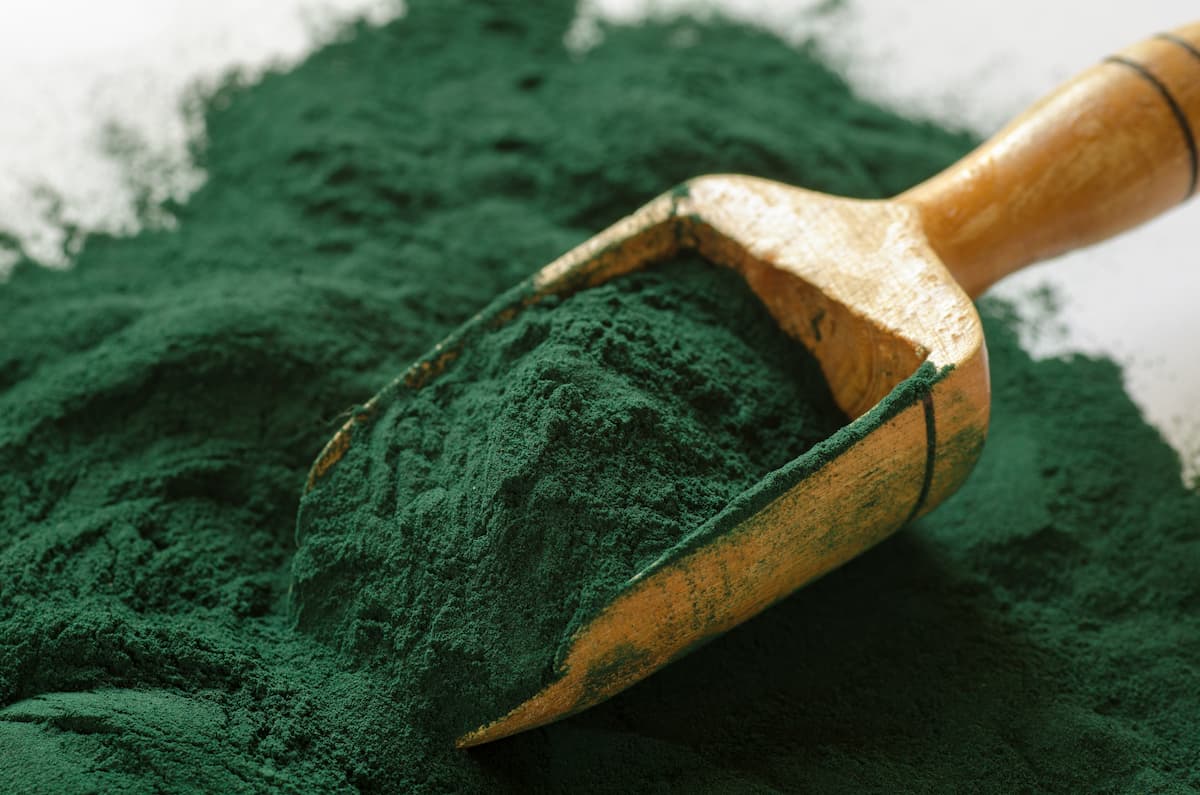
Why you can trust us
Articles on Natu.Care are written based on scientific research, data from government websites and other reliable sources. The texts are written in cooperation with doctors, nutritionists and other health and beauty experts. Articles are reviewed before publication and during significant updates.
.Learn more about our editorial process
.Information about advertisements
Content on Natu.Care may contain links to products from the sale of which we may receive a commission. When creating content, we adhere to high editorial standards and take care to be objective about the products discussed. The presence of affiliate links is not dictated by our partners, and we select the products we review ourselves completely independently.
.Learn more about our terms and Conditions
.It is 3.5 billion years old, is one of the best sources of protein and has been studied in space. It is spirulina that will provide you with vitamins, cleanse your body of toxins and be your plant-based... antioxidant shield.
This superfood is one of the oldest life forms on earth. And together with Ilona Krzak, MSc in pharmacy, we will go through it length and breadth.
Take a look at how to make the most of it.
From this article you will learn:
- What spirulina is and what it is made of.
- What it is made of.
- What spirulina helps with and what medicinal properties it has. .
- How to dose spirulina and what it has in common with chlorella.
- How to dose spirulina and what it has in common with chlorella.
- Whether there are contraindications or side effects during supplementation. .
- How to use spirulina and which is best. .
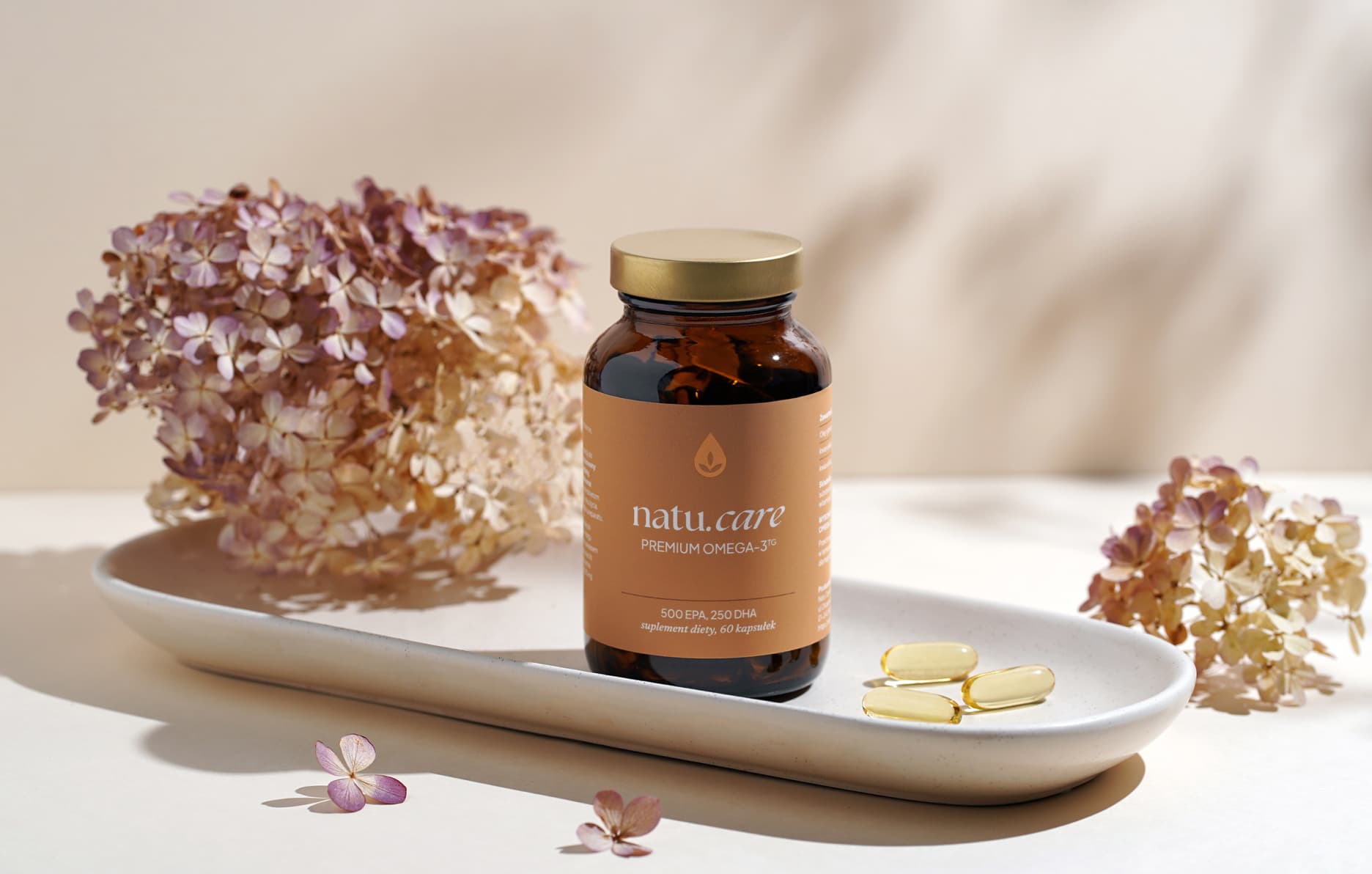
Sprawdź, za co pokochały go tysiące klientek Natu.Care Premium Omega-3ᵀᴳ -15% z kodem BLOG15
Natu.Care Omega-3ᵀᴳ Premium
Natu.Care Omega-3ᵀᴳ Premium dla zdrowia serca, mózgu i odporności. Najlepsza przyswajalność. Optymalna dawka 750 mg. Przebadana przez niezależne laboratorium.
Zobacz więcej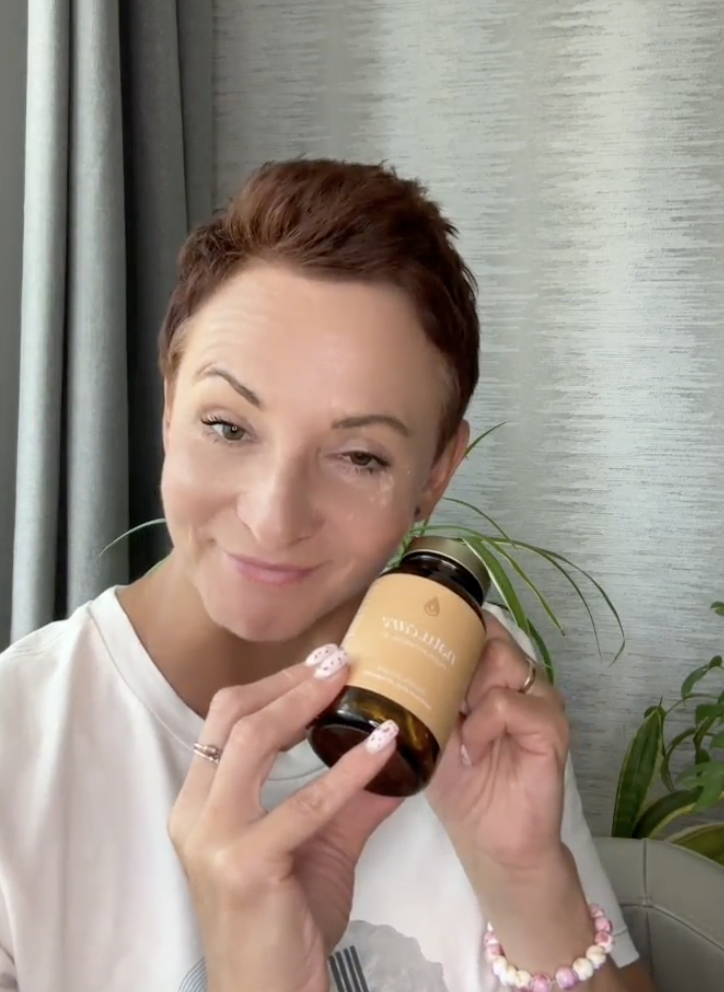
Produkt ma super skład, transparentną etykietę i co dla mnie jest ważne – małe kapsułki do połknięcia. Nie ma też nieprzyjemnego efektu odbijania rybą, który miałam spożywając inne produkty. Widzę znaczną poprawę odporności. Polecam!@Kasia P.
See also:
.
What is spirulina?
.
Spirulina is a type of cyanobacteria, or blue-green algae, which is considered to be one of the oldest forms of life on Earth. It is known for its rich nutritional value and is often used as a dietary supplementand.
These microscopic algae occur naturally in fresh waters and tropical brines. Due to their ability to photosynthesise, they have played a key role in the biological evolution of our planet. Today, spirulina is valued for its high protein and other nutrient content.
Spirulina has also been recognised and recommended by the National Aeronautics and Space Administration and the European Space Agency as a dietary supplement for long-term space travel..
 .
.
Ilona Krzak Master of Pharmacy
.
What is spirulina made from?
.
Spirulina is a naturally occurring micro-organism that grows in fresh waters and brines in warm climate zones. It is extracted for commercial production from just such sources or cultured in artificial ponds.
Spirulina undergoes a drying process after harvesting. This allows it to be stored for a long time without losing its nutritional value. The algae is then processed into various forms such as tablets, capsules or powder and sold as supplements.
What is the composition of Spirulina?
What is the composition of spirulina?
.
Blue spirulina is a real treasure trove of nutritional value. It is a rich source of proteins, minerals, vitamins, fatty acids, and antioxidants.
- Protein. Spirulina contains between 55% and 70% protein, making it one of the richest sources of this macronutrient. Proteins are, among other things, essential for building and repairing tissues in the body, transporting substances and protecting the body from pathogensand.
- Vitamins and ingredients mineral. Spirulina provides important B vitamins, iron, magnesium, potassium and manganese, which support a range of metabolic functionsand.
- Omega acids. Algae contain omega-3 acids and omega-6, which, among other things, support heart and brain healthand. .
- Antioxidants. Spirulina is a source of phytocyanin, an antioxidant that helps protect the body from damage caused by oxidative stressand. .
Spirulina is an excellent source of protein in food as it contains a high percentage of essential amino acids (EAAs), which account for approximately 38.81-47% of total protein by weight..
 .
.
Ilona Krzak Master of Pharmacy
.
What spirulina helps - properties and effects
.
Spirulina, as a natural source of many key nutrients, has numerous health-promoting properties. These include antioxidant activity, support for the immune system or positive effects on heart health. How exactly does spirulina work?
Effects of spirulina use:
.
Antioxidant effects
.
Blue spirulina is an extremely rich source of antioxidants, the most important of which is phycocyanin. In addition to giving spirulina its characteristic blue-green colour, phycocyanin is precisely the powerful antioxidantand.
Antioxidants neutralise harmful free radicals, which can cause a variety of health problems, including chronic and degenerative diseases and accelerate the ageing process . However, phycocyanin not only fights free radicals, but also has anti-inflammatory effects.
What's more, you'll also find other important antioxidants in spirulina's ingredients, such as selenium, vitamin C and vitamin E, which further enhance its antioxidant properties.
Spirulina may suppress oxidative stress on adipocytes, and thus may lead to systemic anti-inflammatory effects.
.
 .
.
Ilona Krzak Master of Pharmacy
.
Study
A meta-analysis conducted on a total of 415 people tested the effect of spirulina supplementation on the body's antioxidant capacity. Participants in the study were aged 20-66 years and the supplementation period ranged from 1 to 16 weeks. Participants took 1-8 grams of spirulina per day. The meta-analysis showed that spirulina supplementation had a positive effect on the body's antioxidant capacityand.
Heart health support
.
Research indicates that spirulina helps to lower cholesterol and triglyceride levels in the body, which is crucial for cardiovascular health .
Spirulina is rich in unsaturated fatty acids, especially omega-3 and omega-6. They work by lowering 'bad' LDL cholesterol and triglycerides, while raising 'good' HDL cholesteroland.
What's more, spirulina has the aforementioned antioxidant properties that protect the heart and blood vessels from damage.
Supplementation with 4.2g of spirulina for four weeks can significantly reduce triglyceride levels. What's more, the compound also reduces diastolic blood pressure, which is important to maintain a healthy cardiovascular systemand.
Study
.A study on 30 patients with chronic obstructive pulmonary disease and 20 healthy subjects tested the effects of spirulina on oxidative stress markers such as malondialdehyde and lipid hydroperoxide. The research paper suggests that taking spirulina at a dose of 2 × 500 mg or 4 × 500 mg daily for 30 or 60 days reduces oxidative stressand.
.
Strengthening the immune system
.
Spirulina has the ability to stimulate and increase the activity of the immune system. It owes this to the antioxidants in the formulation, which help to fight free radicals. Free radicals are particles that can cause oxidative stress in cells, which in turn leads to inflammation and can weaken immunityand.
Thanks to its antioxidant properties, blue spirulina helps to neutralise these harmful particles, thus protecting your cells from damage and helping to keep your immunity in good shape.
Importantly, spirulina also contains a protein (phycocyanin) that has the ability to inhibit the production of inflammatory signalling molecules in the body. In this way, it not only strengthens your immunity, but also helps to reduce the risk of chronic inflammation.
Additionally, the content of zinc in spirulina may also help to intensify the body's immune response, due to this ingredient's key role in the immune responseand.
Improve gut health
.
Spirulina has many benefits for gut health, mainly due to its high fibre content. It is important for the proper functioning of the digestive system. It helps to regulate bowel function, ensuring regular bowel movements and supporting the maintenance of a healthy gut flora. Consuming fibre can also help prevent constipation and support overall gut healthand.
Additionally, spirulina also contains specific compounds called polysaccharides, which can act as prebiotics. Prebiotics are a type of fibre that serves as food for probiotics, the good bacteria in your digestive system.
Thanks to this, spirulina promotes the maintenance of a healthy and balanced gut microbiome, which has an important function in the immune system, digestion and overall health.
Positive effects on eye health
.
Spirulina blue is exceptionally rich in vitamin A, also known as retinol. This vitamin is essential for the proper functioning of the organ of vision. It helps maintain the health of the retina - the membrane on the back wall of the eye, responsible for receiving and transmitting images to the brain. Vitamin A deficiency can lead to decreased vision, especially in low lightand.
By providing the body with vitamin A, spirulina can help protect the eyes from conditions such as dry eye, keratitis and so-called night blindness. What's more, spirulina contains lutein and zeaxanthin, which are powerful antioxidants known to protect the eyes from UV damage. These antioxidants may help prevent certain eye diseases, such as cataracts and macular degenerationandj.
Drinking 1-2 g of spirulina per day is sufficient to cover the body's daily requirement of vitamin A..
 .
.
Ilona Krzak Master of Pharmacy
.
How to use spirulina
.
The dosage of spirulina usually ranges from 1 to 8 grams per day, but in some cases up to 10 grams per day can be used (and according to studies, this is safeand). When it is in powder form, you can use it by adding it to smoothies, juices, food or simply by drinking it with waterand.
Always follow the manufacturer's recommendations and consult your doctor or dietitian before starting spirulina supplementation.
Spirulina at a dose of 1 g per day can reduce appetite, and 2 g supplemented each day for 3 months significantly reduces BMI. Of course, with a concurrent reduction diet and physical activity..
 .
.
Ilona Krzak Master of Pharmacy
.
Who is spirulina for?
.
Spirulina is a superfood recommended for everyone, and it will be particularly helpful for athletes, physically active people, vegans, vegetarians, people with nutritional deficiencies and seniors. How exactly can it support these groupsand?
- Athletes and physically active people. Spirulina is rich in protein, which helps build and repair muscle. Regular intake of this ingredient can improve performance and speed up recovery after training.
- People on a vegan or vegetarian diet. Spirulina is an excellent source of plant protein and can help supplement nutritional needs that may be difficult to meet with diets that restrict animal products.
- People with nutritional deficiencies. Spirulina is rich in many vitamins and minerals, including iron, calcium, magnesium, copper, vitamin E, vitamin B and beta-carotene. .
- Seniors. Due to its antioxidant and anti-inflammatory properties, spirulina may support the overall health and well-being of older adults, especially due to its ability to improve immune function. .
What not to combine spirulina with?
.
Spirulina is often considered safe to consume with most medications and supplements. However, there are some interactions you should be aware of. What should spirulina not be combined with and why?
.
|
Meaning |
Why must not be combined?and |
|
|
Immunosuppressive medicines . |
Spirulina has immunostimulatory properties, meaning that it can increase the activity of the immune system. Its supplementation may therefore counteract the effects of immunosuppressive drugs, which are taken to inhibit the function of this system. |
|
|
Anticoagulants |
Spirulina can prevent blood clotting, which can increase the risk of bleeding, especially when combined with anticoagulants. This is particularly important for people who are already taking these types of drugs.
|
|
|
Diabetic medicines |
Because spirulina can lower blood sugar concentrations, there is a risk that it may thereby affect the effects of antidiabetic drugs, leading to hypoglycaemia. |
Because spirulina can lower blood sugar concentrations, there is a risk that it may thereby affect the effects of antidiabetic drugs, leading to hypoglycaemia. |
|
Other supplements with anticoagulant effects |
Similar to anticoagulants, spirulina may increase the risk of bleeding when combined with other supplements with anticoagulant effects (e.g. omega-3 acids). |
Spirulina - morning or evening?
.
Spirulina is a dietary supplement that can be taken both in the morning and in the evening, depending on individual preference and lifestyle. Some people find it best to consume spirulina in the morning to reap the energy and benefits throughout the day. Others prefer to consume spirulina late in the evening to help with the recovery process while sleeping.
It is best to test the consumption of spirulina throughout the day, at different times. This will help you find out which time of day is best for you.
How long to use spirulina?
.
Research suggests that spirulina doses up to 19 grams can be used for up to two months without concern. On the other hand, lower portions (oscillating around 10 grams) can be taken for up to six months. However, if you are concerned about anything during spirulina supplementation, discontinue the supplement immediately.
.
Can you take spirulina on an empty stomach?
.
Spirulina can be taken on an empty stomach, especially when used to support detoxification of the body. Nevertheless, some people may experience slight gastric discomfort by taking it on an empty stomach. If this is the case, spirulina is worth taking during or immediately after a meal.
Where to buy spirulina?
.
Spirulina can be purchased both in pharmacies and drugstores, e.g. Rossmann. You will also easily get it in online shops, especially herbal shops. The price of spirulina, on the other hand, usually ranges from a dozen to several dozen zlotys - depending on the manufacturer.
.
Which spirulina is the best - ranking
.
Spirulina Ostrovit
.
Rating: 4.9
- Spirulina content: 1000 mg .
- Form: tablets .
- Dose: 4 tablets daily .
- Sufficient for: 250 days .
Spirulina Ostrovit will find its use in lowering blood sugar levels or strengthening the immune system. The product has laboratory tests for ethylene oxide, as well as microbiological tests for yeast, moulds or Salmonella, among others.
Pluses and minuses:
Pluses:
- Very efficient pack - lasts for up to 250 days of supplementation.
- Laboratory tested.
- Laboratory and microbiological testing. .
- Decent dosage (4 tablets per day). .
Minusals:
- The daily allowance of spirulina is lower than its competitors.
Additional information:
.
Product may contain milk (including lactose), soy, peanuts, sesame seeds, cereals containing gluten, eggs, shellfish and fish.
Spirulina Pacifica
.
Rating: 4.7
- Spirulina content: 500 mg .
- Form: tablets .
- Dosage: 2 times daily, 3 tablets .
- Sufficient for: 30 days .
Product description:
.
Natural Hawaiian pacifica spirulina that stands out for its quality. It is a 100% vegetarian and vegan dietary supplement. The product provides wholesome protein (58-62%) with a complete set of 18 amino acids, plus minerals and vitamins.
Provides a complete protein (58-62%) with a complete set of 18 amino acids, plus minerals and vitamins.
The supplement is produced in good conditions, in Hawaii by Cyanotech Corporation, a leader in spirulina production.
Pluses and minuses:
.
Pluses:
- Proven spirulina manufacturer. .
- Natural ingredients. .
Minimums:
.- The spirulina dosage is low. .
Additional information:
.
Spirulina tablets from Pacifica are safe, and contain no gluten, lactose, soy, pesticides, herbicides or solvents.
Spirulina BIO MyVita
.
Rating: 4.8
- Spirulina content: 2500 mg .
- Form: tablets .
- Dose: 2 times a day for 5 tablets .
- Sufficient for: 100 days .
Spirulina BIO from MyVita is an organic dietary supplement that will provide you with a solid dose of spirulina. The formula is non-GMO and comes from controlled cultivation. The organic certificate guarantees that no artificial fertilisers or pesticides were used at any stage of production.
Pluses and minuses:
Pluses:
- Good daily allowance of spirulina.
- Good quality of spirulina.
- Efficient packaging. .
Minimums:
.- Requirement to take as many as 10 tablets per day.
Additional information:
.
Preparation is not intended for children or pregnant or lactating women.
Preparation is not intended for children or pregnant or lactating women.
Solgar Spirulina
.
Rating: 4.7
- Spirulina content: 3000 mg .
- Form: capsules .
- Dose: 4 capsules daily .
- Sufficient for: 20 days .
Solgar Spirulina is the ideal formula for people who want to support their immune system or those who are physically active. The formula provides a solid serving of spirulina, which, according to research, can have positive effects, for example on the body's antioxidant capacity.
Pluses and minuses:
Pluses:
- A good dose of spirulina. .
- One of the more convenient dosages - only 4 capsules per day.
Minusals:
- Package only lasts for 20 days of supplementation. .
Additional information:
.
Spirulina used in the supplement from Solgar is certified as organically produced and recognised by the EU.
Spirulina from Swanson
.
Rating: 4.8
- Spirulina content: 3000 mg .
- Form: tablets .
- Dose: 2-6 tablets daily .
- Sufficient for: 30-90 days .
Spirulina from Swanson is a solid dietary supplement with a good dose of the active ingredient. The manufacturer recommends taking two or six tablets (depending on expectations), but just one provides as much as 500 mg of spirulina.
Pluses and minuses:
.
Pluses:
- Free dosage (and high spirulina dose at largest serving).
Minuses:
- None: .
Additional information:
.
Although the dosage is flexible, do not exceed the maximum recommended serving, which is 6 tablets per day.
What are the contraindications to the use of spirulina?
.
Although spirulina is safe for most people, some people should be careful with it. Particular caution must be exercised by people with chronic illnesses, allergies, and women who are pregnant or breastfeeding.
Contraindications to spirulinaand:
.
- Allergy to spirulina. If you are allergic to spirulina or other cyanobacteria, its consumption can cause allergic reactions. Symptoms of such a condition may include a rash, itching, sneezing or breathing problems. .
- Autoimmune diseases. Spirulina can activate the immune system, which can harm people with diseases of the immune system, such as multiple sclerosis, rheumatoid arthritis, or psoriatic arthritis.
- Hemorrhagic disorders. Some studies suggest that spirulina may increase the risk of bleeding in people with blood clotting disorders. Therefore, these individuals should exercise extreme caution. .
- Kidney and liver. Products containing spirulina may be contaminated with toxic metals and other harmful substances that can adversely affect the kidneys and liver.
- Pregnancy and breastfeeding. Due to a lack of sufficient research, it is not known whether spirulina is safe for pregnant and breastfeeding women. To avoid potential risks, it is better simply not to use it. .
Other contraindications to spirulina use include migraine and fibromyalgia..
 .
.
Ilona Krzak Master of Pharmacy
.
Does spirulina cause side effects?
.
Yes, spirulina can cause side effects in some people, although these are relatively rare and usually occur when supplements are consumed in large quantities. What are the possible side effects of taking spirulinaand?
- Gastrointestinal complaints, such as bloating, diarrhoea and nausea.
- Allergic reactions.
- Allergic reactions to spirulina, such as itching, hives or difficulty breathing.
- Allergic reactions to spirulina, such as itching, hives or difficulty breathing.
- Dermal irritation, manifested, for example, by a rash. .
- Dizziness and headaches. .
Remember that all dietary supplements, including spirulina, should be consumed in moderation and under the supervision of a doctor or clinical nutritionist. If you experience any side effects, discontinue spirulina use and consult your doctor if necessary.
Spirulina is an inexpensive dietary supplement and has not been found to cause any significant side effects. Some studies report cases of anaphylaxis, but these were always supplements..
 .
.
Ilona Krzak Master of Pharmacy
.
Spirulina and chlorella - what are they?
.
Spirulina and Chlorella are two types of algae that are commonly used as dietary supplements due to their high nutrient content.
Spirulina is a blue-green algae that is one of the oldest organisms living on earth. Dietary supplements that contain it are rich in protein, vitamins, minerals and antioxidants. Spirulina is particularly appreciated for its high levels of protein, containing all the essential amino acids. What's more, it also provides plenty of iron, B vitamins and beta-caroteneand.
Chlorella on the other hand, is a freshwater, single-celled green algae. It is rich in protein, vitamins and minerals - it contains more chlorophyll than any other plant - which helps with the body's detoxification processes. Chlorella is also rich in B vitamins, magnesium, zinc and ironand.
Both supplements are valued for their health benefits, including supporting the immune system, improving gut health and helping to detoxify the body.
Spirulina and chlorella - together or separately?
.
Spirulina and chlorella can be consumed either together or separately, depending on individual health needs and goals. Both agents offer unique health benefits and are rich in a variety of nutrients.
Eating spirulina and chlorella together can provide synergistic health benefits - spirulina is particularly rich in protein and is a good source of beta-carotene and vitamin B. Chlorella, on the other hand, is known for its high chlorophyll content and is excellent for detoxifying the bodyand.
However, especially if you are just starting to use these algae, you may choose to consume them separately to see how your body reacts to them. It is always advisable to start with small doses and gradually increase them as your body adjusts.
It is also advisable to start with small doses and gradually increase them as your body adapts.
Can spirulina and chlorella cause side effects?
.
Yes, both spirulina and chlorella can cause side effects in some people, although these are usually mild and pass after a short time. Like any supplement, they can cause different reactions depending on the individual body's response. Possible side effects includeand:
- Uncomfortable stomach problems such as bloating, diarrhoea and nausea. .
- Allergic reactions, such as itching, hives, or difficulty breathing.
- Allergic reactions.
- Skin irritation, manifested, for example, by a rash. .
- Dizziness and headaches. .
It is worth noting that some products containing spirulina and chlorella may also be contaminated with heavy metals or other toxins. Therefore, always choose products from trusted manufacturers and check safety certificates.
Spirulina in pregnancy
.
Spirulina is a dietary supplement rich in protein, vitamins and minerals, which may suggest that it is beneficial for pregnant women. However, researchers advise caution. Although spirulina is widely regarded as safe, there are insufficient scientific studies evaluating its safety or effects on pregnant women and their unborn childrenand.
Additionally, there are concerns about the potential for spirulina to be contaminated with toxins and heavy metals, which may have a negative impact on the developing foetus. Furthermore, some studies suggest that spirulina may stimulate the immune system, which may be undesirable during pregnancyand.
This is why women expecting a baby who are considering taking spirulina should first consult their doctor. It is the safest way to ensure the health of both the mother and her baby.
Spirulina and breastfeeding
.
Similar to pregnancy, there is a lack of precise scientific research on the effects of spirulina on breastfeeding. Although it is rich in protein, vitamins and minerals, and may appear to be beneficial for breastfeeding mothers, there are also some risks.
A particular concern is the likelihood of spirulina being contaminated with harmful substances such as heavy metals. What a mother consumes has a direct effect on her milk and therefore also on the baby - the toxins can pass into the breast milk and harm the baby.
The risk of contamination of spirulina is not clear.
Furthermore, there are no studies on how spirulina affects breast milk production. For this reason, any woman who is considering spirulina supplementation while breastfeeding should consult her doctor or a nutritionist.
For this reason, any woman who is considering spirulina supplementation while breastfeeding should consult her doctor or nutritionist.
See also:
Summary
.
- Spirulina is a type of algae that grows naturally in tropical saline and freshwater bodies of water.
- Spirulina is rich in proteins, vitamins, minerals, omega-3 and omega-6 fatty acids and antioxidants. .
- Main properties of spirulina include antioxidant activity, immune system support and positive effects on heart health.
- The recommended dose of spirulina is 1-8 grams per day, with some studies suggesting a safe serving of up to 19 grams per day.
- Spirulina is often recommended for athletes, physically active people, vegans, vegetarians, people with nutritional deficiencies and seniors.
- There are some contraindications to the use of spirulina, such as algae allergy, autoimmune diseases, haemorrhagic disorders, kidney and liver disorders, as well as pregnancy and breastfeeding.
- Spirulina and chlorella are two types of algae used as dietary supplements that can be consumed together or separately. .
- There are no precise scientific studies on the effects of spirulina on pregnancy and breastfeeding, so it is advisable to consult a doctor or dietician before using it during these periods.
FAQ
.Does spirulina help with weight loss?
.Spirulina is rich in protein, vitamins and minerals, making it a healthy addition to diet. In addition, its anti-hunger properties can aid in the fight against excess weight. However, spirulina alone does not lead to weight loss without a healthy diet and physical activity, and direct evidence for its effectiveness in weight loss is limited.
How to eat spirulina?
.Spirulina can be combined with a variety of meals. It is most commonly found in tablet or powder form, which can be added to smoothies, yoghurt or salads. Dosage should be adjusted individually, and the recommended daily serving is approximately 1-10 grams.
Does spirulina help with the face?
.Spirulina is rich in antioxidants, which help fight free radicals and prevent skin ageing. Its anti-inflammatory properties can also reduce redness and inflammation. Spirulina can be used externally as a face mask or orally for overall skin improvement.
How does spirulina affect the thyroid and Hashimoto's?
.Spirulina is a source of iodine, which is crucial to the function of the thyroid, but its effect on Hashimoto's disease can be ambiguous. On the one hand, iodine may help the thyroid to function properly, but on the other hand, in people with Hashimoto's, it may exacerbate the symptoms of the disease.
There is also no conclusive scientific evidence on spirulina and Hashimoto's, so it is recommended to consult a doctor before taking it.
How does spirulina taste?
.The taste of spirulina is often described as distinctly 'marine', with a strong, slightly bitter aftertaste. Some compare it to the taste of spinach or nori, the dried marine algae used in sushi.
This strong, slightly salty taste can be unpleasant for some, which is why spirulina is often added to smoothies, yoghurt or other foods to neutralise the flavour.
Does spirulina help hair?
.Spirulina is a source of protein, iron and B vitamins, which are key to the health hair. They may therefore contribute to stimulating hair growth and preventing hair loss. A number of studies suggest that spirulina may also help reduce inflammation of the scalp. However, direct evidence of its effectiveness for hair is inconclusive.
What is the difference between spirulina and chlorella?
.Spirulina and chlorella are types of algae with high nutritional value. Spirulina, is a blue-green algae that contains 55% to 70% protein and is rich in vitamins and minerals, such as iron, magnesium, potassium and manganese.
Chlorella, on the other hand, is an algae that provides more chlorophyll than any other plant. Due to its high chlorophyll content, chlorella is excellent for detoxifying the body.
What are the benefits of consuming spirulina?
.Spirulina is known for its many health benefits. It acts as an antioxidant, supports the immune system, and benefits heart and joint health. Regular consumption of spirulina can help lower cholesterol, support gut health and contribute to improved eye health.
Does spirulina contain iodine?
.Yes, spirulina contains iodine, a mineral essential for the proper functioning of the thyroid gland. Iodine is a component of thyroid hormones, regulates metabolism, growth, and the central nervous system. However, despite the nutritional value of spirulina, the iodine content of these algae can vary depending on the culture conditions.
Does spirulina stimulate?
.Spirulina does not have a stimulating effect in the typical way that coffee or guarana do. However, due to its high content of protein, of iron, of B vitamins, spirulina increases the body's natural energy and endurance. It may therefore contribute to improved mood and physical performance, which may be experienced as a subtle 'boost'.
Does spirulina contain vitamins?
.Yes, spirulina is a rich source of many vitamins. It contains B vitamins, including B1, B2, B3, B5, B6, B9, and vitamin E. It also provides antioxidants, such as phycocyanin, but doses of individual substances may vary depending on algae growing conditions.
Does spirulina provide iron?
.Yes, spirulina is a source of iron, which is essential for the body to function properly, particularly the production of red blood cells and oxygen transport. The iron provided by spirulina is more easily absorbed by the body than from other plant sources. This makes spirulina an attractive source of iron, especially for those on plant-based diets.
However, be aware that the best absorbed iron is from animal sources (e.g. poultry liver), as there is heme iron, which is much better absorbed than plant sources.
Is spirulina dangerous?
.Spirulina is generally considered safe to consume, but there are several potential risks. Some sources of it may contain toxic substances, such as heavy metals, if it is harvested from contaminated waters.
In some cases spirulina can also cause side effects such as nausea, headaches and allergies.
.
Sources
.See all
.Bagheri, R., Negaresh, R., Motevalli, M. S., Wong, A., Ashtary-Larky, D., Kargarfard, M., & Rashidlamir, A. (2022). Spirulina supplementation during gradual weight loss in competitive wrestlers. The British Journal of Nutrition, 127(2), 248-256. https://doi.org/10.1017/S000711452100091X
Deng, R., & Chow, T.-J. (2010). Hypolipidemic, Antioxidant, and Anti-inflammatory Activities of Microalgae Spirulina. Cardiovascular Therapeutics, 28(4), e33-e45. https://doi.org/10.1111/j.1755-5922.2010.00200.x
El-Shanshory, M., Tolba, O., El-Shafiey, R., Mawlana, W., Ibrahim, M., & El-Gamasy, M. (2019). Cardioprotective Effects of Spirulina Therapy in Children With Beta-Thalassemia Major. Journal of Pediatric Hematology/Oncology, 41(3), 202-206. https://doi.org/10.1097/MPH.0000000000001380
Fais, G., Manca, A., Bolognesi, F., Borselli, M., Concas, A., Busutti, M., Broggi, G., Sanna, P., Castillo-Aleman, Y. M., Rivero-Jiménez, R. A., Bencomo-Hernandez, A. A., Ventura-Carmenate, Y., Altea, M., Pantaleo, A., Gabrielli, G., Biglioli, F., Cao, G., & Giannaccare, G. (2022). Wide Range Applications of Spirulina: From Earth to Space Missions. Marine Drugs, 20(5), Article 5. https://doi.org/10.3390/md20050299
Finamore, A., Palmery, M., Bensehaila, S., & Peluso, I. (2017). Antioxidant, Immunomodulating, and Microbial-Modulating Activities of the Sustainable and Ecofriendly Spirulina. Oxidative Medicine and Cellular Longevity, 2017, e3247528. https://doi.org/10.1155/2017/3247528
Fusco, D., Colloca, G., Monaco, M. R. L., & Cesari, M. (2007). Effects of antioxidant supplementation on the aging process. Clinical Interventions in Aging, 2(3), 377-387.
Ghaem Far, Z., Babajafari, S., Kojuri, J., Mohammadi, S., Nouri, M., Rostamizadeh, P., Rahmani, M. H., Azadian, M., Ashrafi-Dehkordi, E., Zareifard, A., Golchin Vafa, R., & Mazloomi, S. M. (2021). Antihypertensive and antihyperlipemic of spirulina (Arthrospira platensis) sauce on patients with hypertension: A randomized triple-blind placebo-controlled clinical trial. Phytotherapy Research: PTR, 35(11), 6181-6190. https://doi.org/10.1002/ptr.7254
Ghanbari, F., Amerizadeh, A., Behshood, P., Moradi, S., & Asgary, S. (2022). Effect of Microalgae Arthrospira on Biomarkers of Glycemic Control and Glucose Metabolism: A Systematic Review and Meta-analysis. Current Problems in Cardiology, 47(10), 100942. https://doi.org/10.1016/j.cpcardiol.2021.100942
Hu, J., Li, Y., Pakpour, S., Wang, S., Pan, Z., Liu, J., Wei, Q., She, J., Cang, H., & Zhang, R. X. (2019). Dose Effects of Orally Administered Spirulina Suspension on Colonic Microbiota in Healthy Mice. Frontiers in Cellular and Infection Microbiology, 9, 243. https://doi.org/10.3389/fcimb.2019.00243
Koite, N. L. N., Sanogo, N. I., Lépine, O., Bard, J.-M., & Ouguerram, K.. (2022). Antioxidant Efficacy of a Spirulina Liquid Extract on Oxidative Stress Status and Metabolic Disturbances in Subjects with Metabolic Syndrome. Marine Drugs, 20(7), 441. https://doi.org/10.3390/md20070441
Machowiec, P., Hand, G., Maksymowicz, M., Piecewicz-Szczęsna, H., & Smoleń, A. (2021). Effect of Spirulina Supplementation on Systolic and Diastolic Blood Pressure: Systematic Review and Meta-Analysis of Randomized Controlled Trials. Nutrients, 13(9), 3054. https://doi.org/10.3390/nu13093054
Moradi, S., Zobeiri, M., Feizi, A., Clark, C. C. T., & Entezari, M. H. (2021). The effects of spirulina (Arthrospira platensis) supplementation on anthropometric indices, blood pressure, sleep quality, mental health, fatigue status and quality of life in patients with ulcerative colitis: A randomised, double-blinded, placebo-controlled trial. International Journal of Clinical Practice, 75(10), e14472. https://doi.org/10.1111/ijcp.14472
Naeini, F., Zarezadeh, M., Mohiti, S., Tutunchi, H., Ebrahimi Mamaghani, M., & Ostadrahimi, A. (2021a). Spirulina supplementation as an adjuvant therapy in enhancement of antioxidant capacity: A systematic review and meta-analysis of controlled clinical trials. International Journal of Clinical Practice, 75(10), e14618. https://doi.org/10.1111/ijcp.14618
Naeini, F., Zarezadeh, M., Mohiti, S., Tutunchi, H., Ebrahimi Mamaghani, M., & Ostadrahimi, A. (2021b). Spirulina supplementation as an adjuvant therapy in enhancement of antioxidant capacity: A systematic review and meta-analysis of controlled clinical trials. International Journal of Clinical Practice, 75(10), e14618. https://doi.org/10.1111/ijcp.14618
Pappas, A., Tsiokanos, A., Fatouros, I. G., Poulios, A., Kouretas, D., Goutzourelas, N., Giakas, G., & Jamurtas, A. Z. (2021). The Effects of Spirulina Supplementation on Redox Status and Performance Following a Muscle Damaging Protocol. International Journal of Molecular Sciences, 22(7), 3559. https://doi.org/10.3390/ijms22073559
Zhang, Y., Zhang, Y., Wu, W., Xu, Y., Li, X., Qiu, Q., & Chen, H. (2022). Effects on Spirulina Supplementation on Immune Cells' Parameters of Elite College Athletes. Nutrients, 14(20), 4346. https://doi.org/10.3390/nu14204346
.
Editorials
Meet the team

Ilona Krzak obtained her Master of Pharmacy degree from the Medical University of Wrocław. She did her internship in a hospital pharmacy and in the pharmaceutical industry. She is currently working in the profession and also runs an educational profile on Instagram: @pani_z_apteki

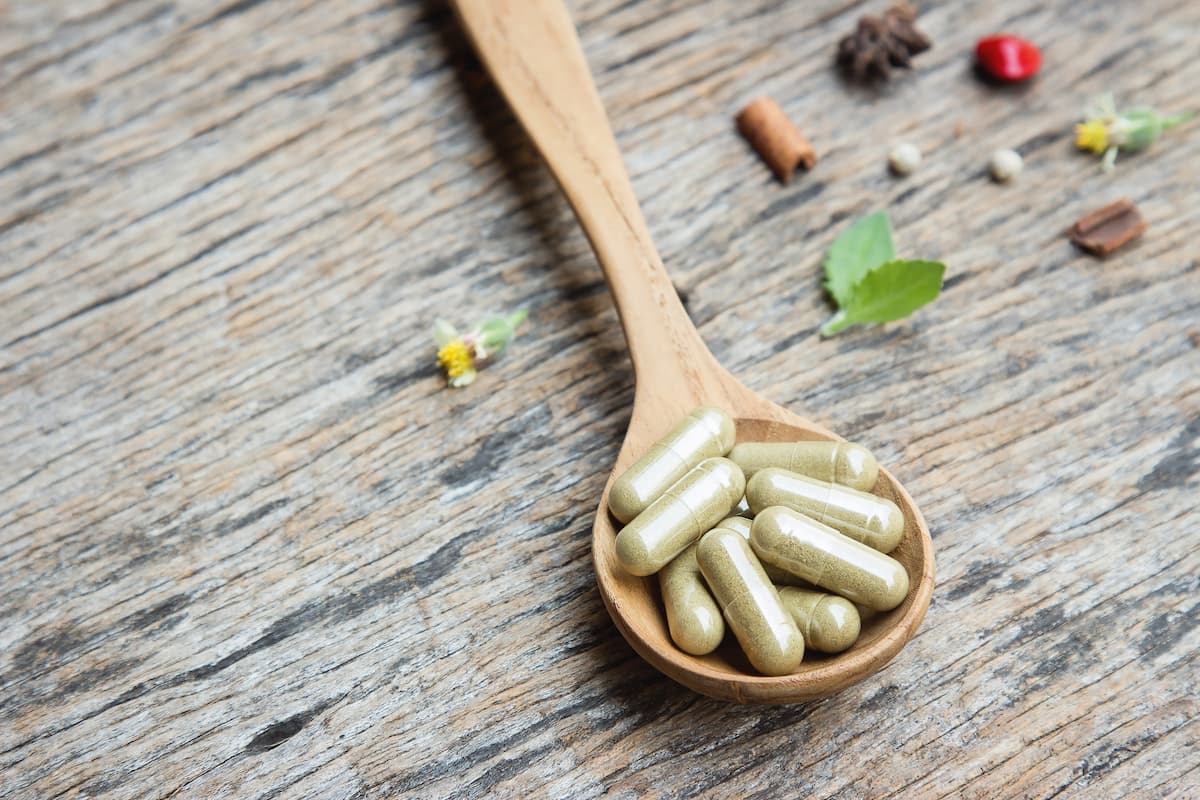
Ashwagandha affects thyroid hormone levels. Find out if you can use it.
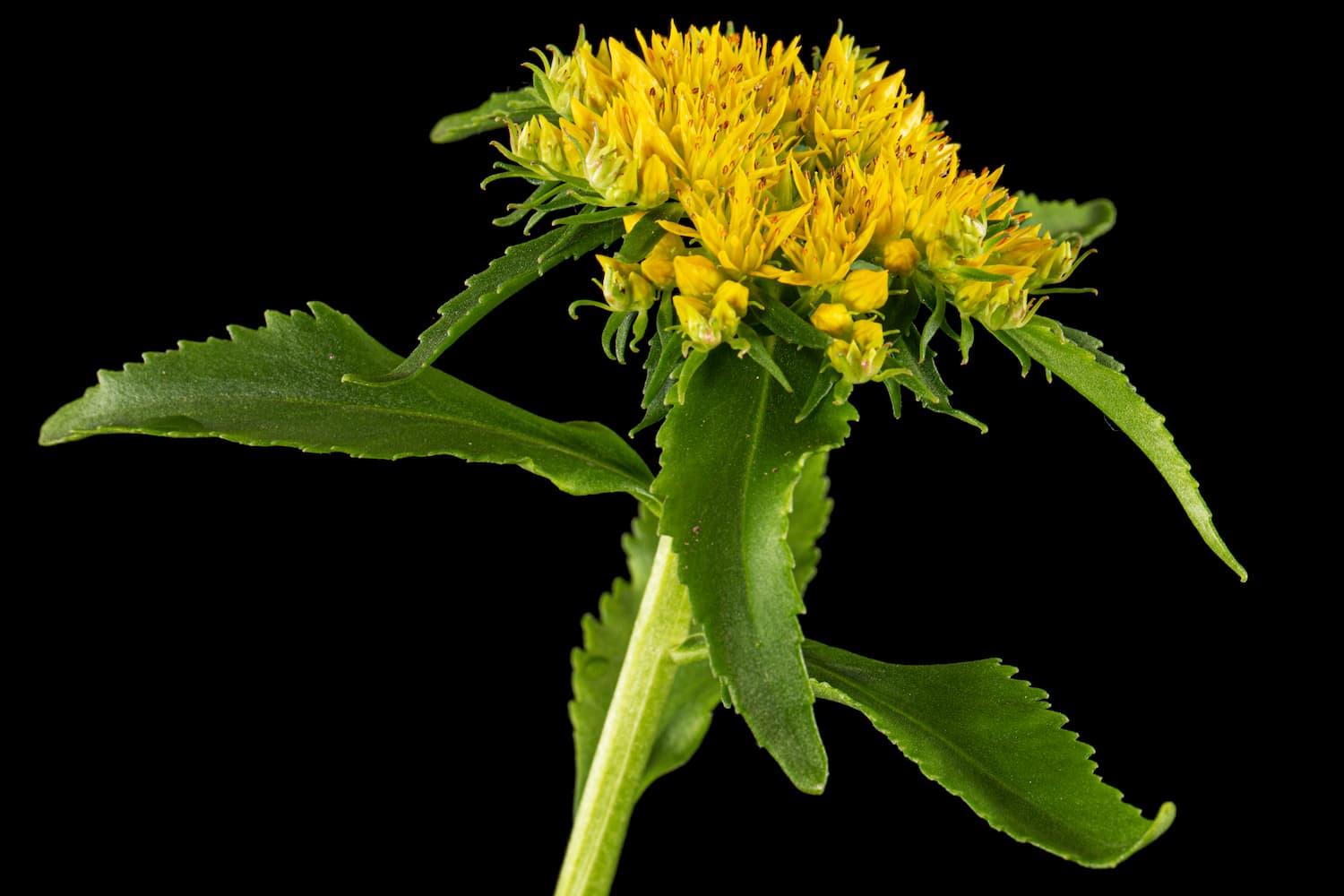
See how mountain pintail can affect your wellbeing.

Check out the opinions of doctors and other professionals about ashwagandha. Also find out what people on the forum think about it.
